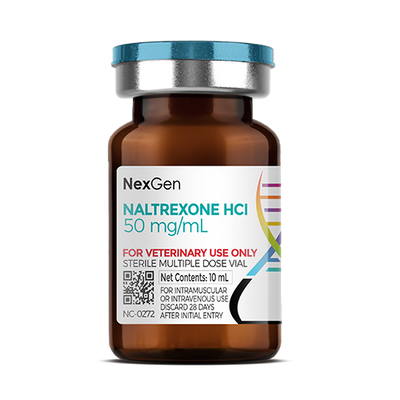
Fluticasone Propionate 2 mg/mL + Amikacin Sulfate 50 mg/mL, Injectable Suspension, 10mL
Login for pricing
- Brand
- Mixlab
- SKU:
- NC-0075
- Product Type:
- Injectable
- Size:
- 10ml
- Administration:
- Intramuscular
Amikacin is an aminoglycoside antibiotic that is used to treat serious gram-negative bacterial infections in horses, dogs, cats and other small animals. In particular, the effectiveness of Amikacin in infections caused by Escherichia coli, Pseudomonas sp, and Klebsiella sp has been demonstrated clinically in the horse. In horses with severe RAO, treatment with fluticasone for 2 weeks resulted in significantly greater improvement in pulmonary function, compared with pulmonary function after treatment with prednisone or a control substance.* Fluticasone 2 mg/ml / Amikacin 50 mg/ml injectable from NexGen is indicated to improve pulmonary function in RAO-affected horses and animals with serious bacterial infections.
FOR RX ONLY: A valid prescription from a licensed veterinarian is required for dispensing this medication.
*Reference
American Journal of Veterinary Research
October 2005, Vol. 66, No. 10, Pages 1665-1674








